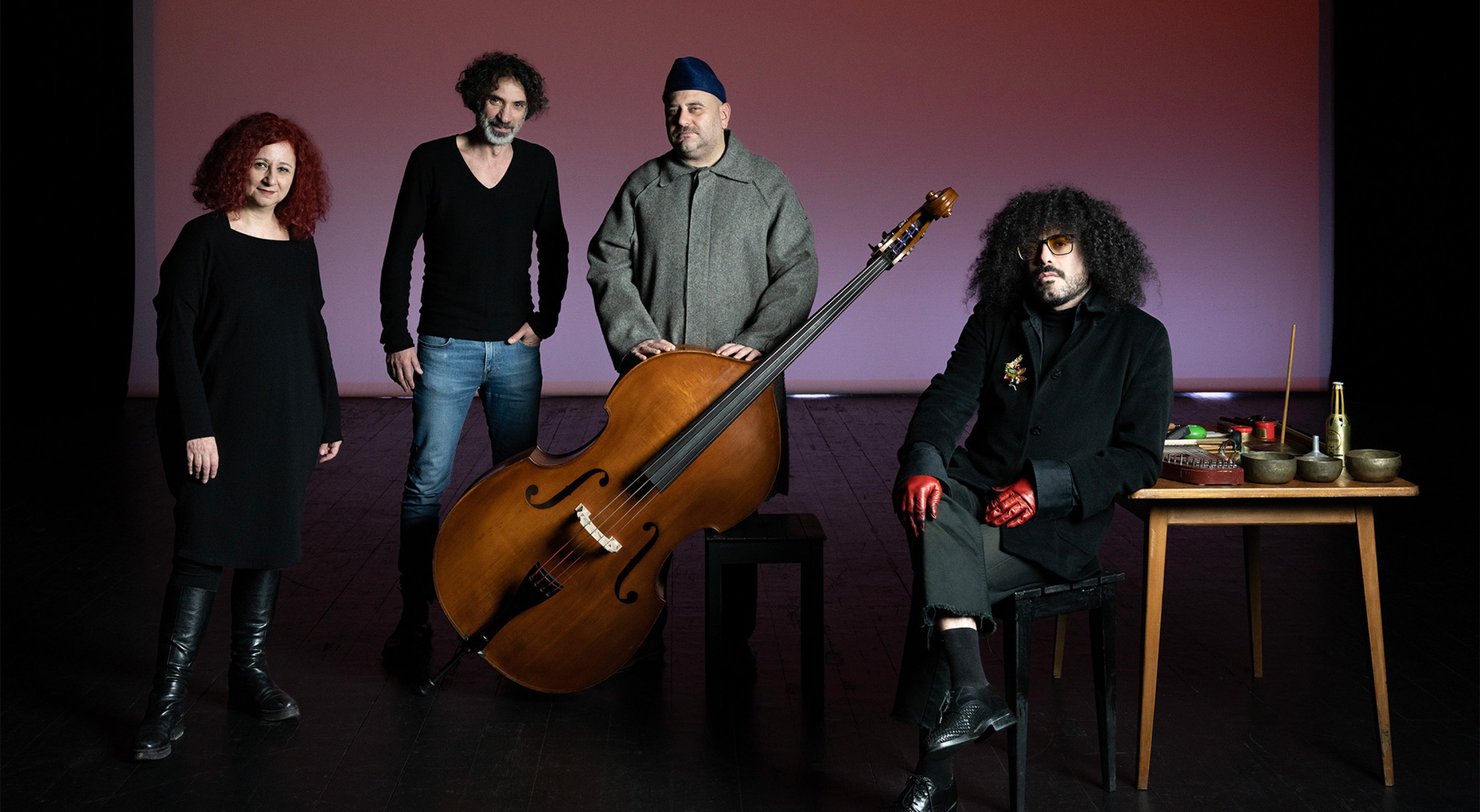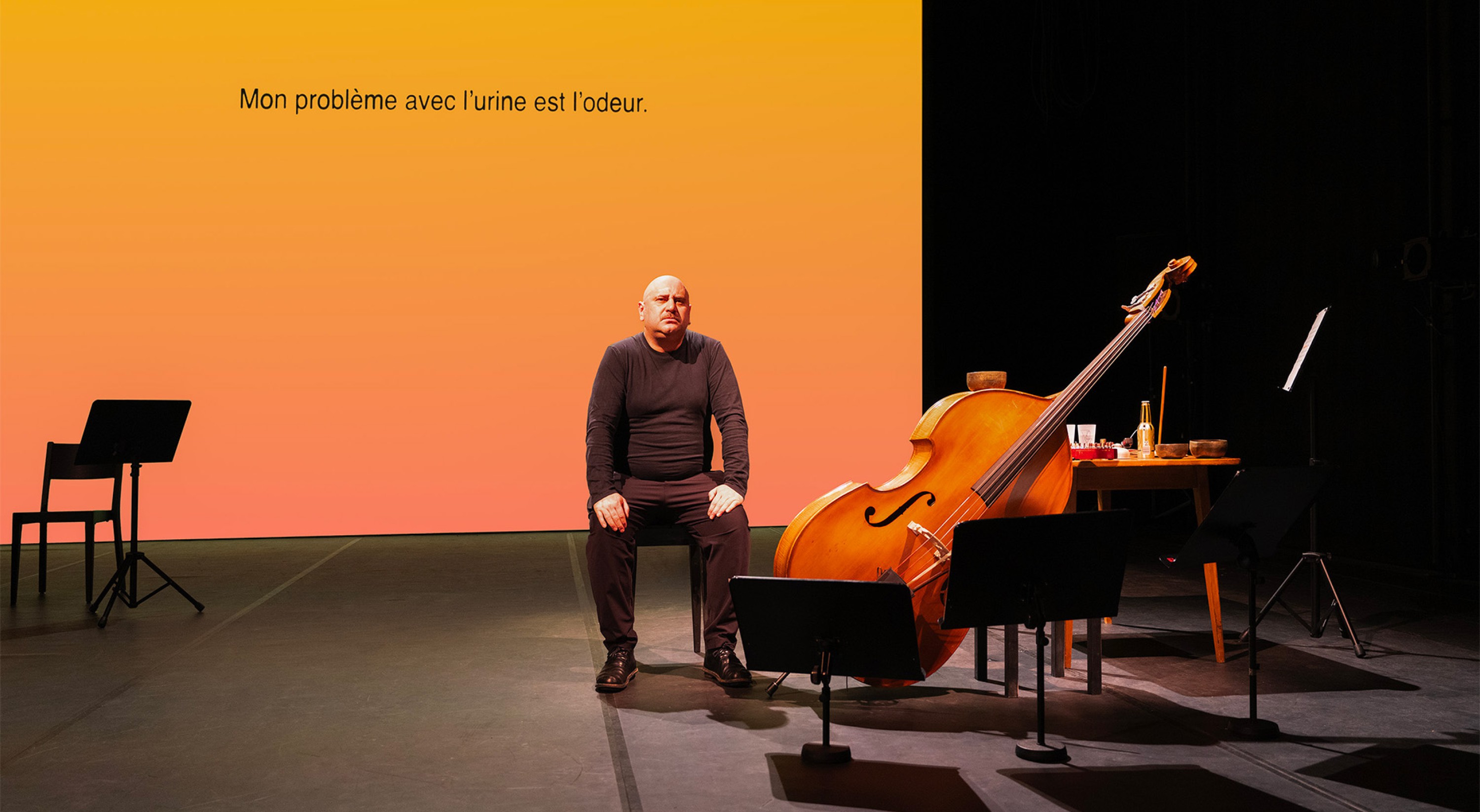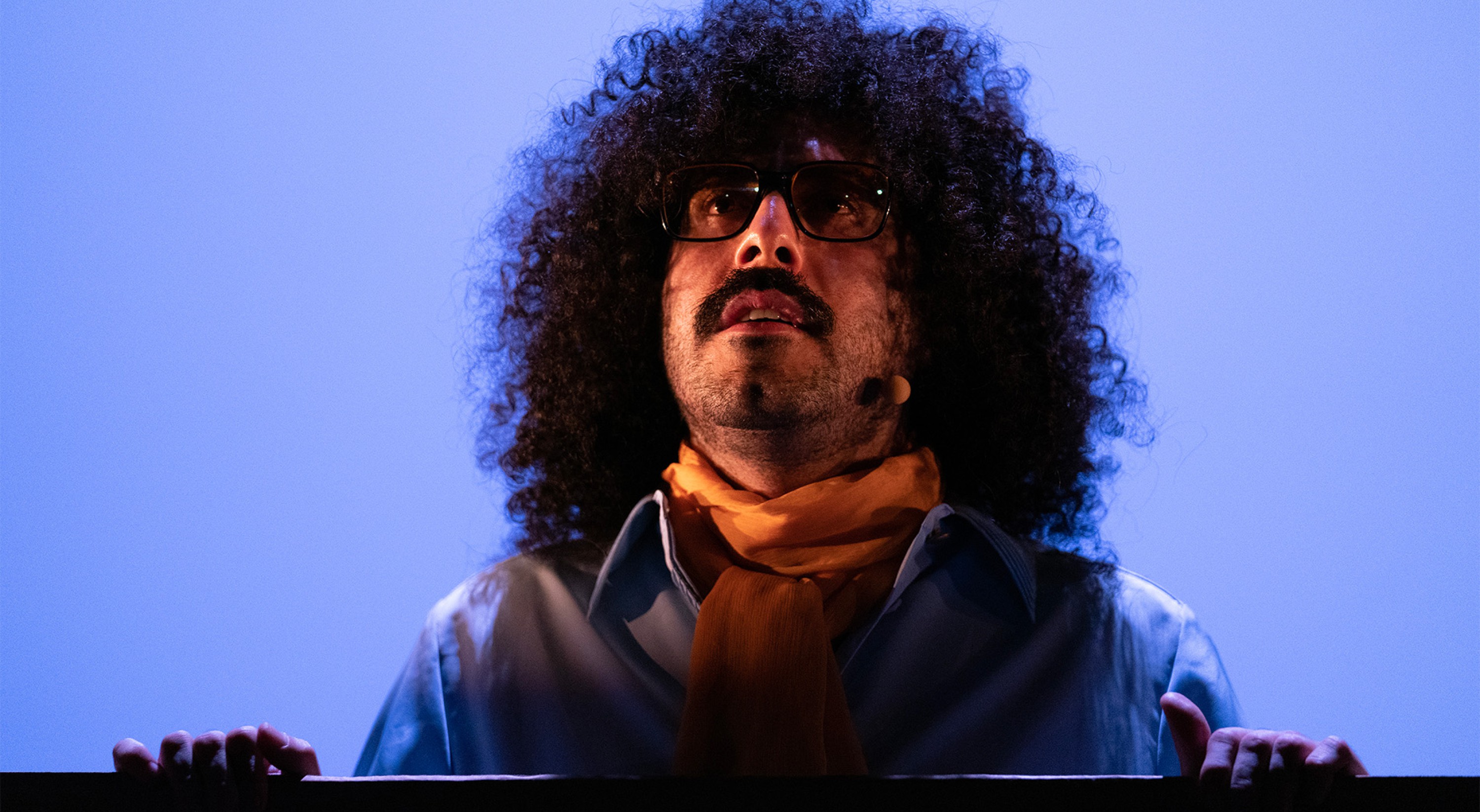Lina Majdalanie Rabih Mroué
Hartaqāt (Hérésies)
septembersept 19 – 30
Concept and direction, Lina Majdalanie and Rabih Mroué
Texts, Rana Issa, Incontinence; Souhaib Ayoub, L'imperceptible suintement de la vie; Bilal Khbeiz, Mémoires non fonctionnelles
With Souhaib Ayoub, Lina Majdalanie, Raed Yassin
Music, Raed Yassin
Choreography (L'imperceptible suintement de la vie), Ty Boomershine
Video, Rabih Mroué
Lighting, Pierre-Nicolas Moulin
Animation, Sarmad Louis
Video programming, Victor Hunziker
Trainee director, Juliette Mouteau
Accessories, Mathieu Dorsaz
Costumes, Machteld Vis
Translations, Lina Majdalanie, Tarek Abi Samra, Tristan Pannatier
Stage and video manager, Jad Makki
Lighting, Julie Nowotnik
Produced by Théâtre Vidy-Lausanne
Coproduced by Printemps des Comédiens (Montpellier); Berliner Festspiele and HAU - Hebbel am Ufer Berlin as part of Performing Exiles; Festival d'Automne à Paris; Théâtre du Rond-Point (Paris); Festival delle Colline Torinesi (Turin); TPE Teatro Piemonte Europa (Turin); La rose des vents Scène nationale Lille Métropole Villeneuve-d'Ascq
The Théâtre du Rond-Point and the Festival d'Automne à Paris are co-producers and co-presenters of this performance.
Three exiled autobiographies from Lebanon bear witness to the crossing of frontiers, which separate countries, eras, languages, social classes, genders and religions. In three chapters, Lina Majdalanie and Rabih Mroué weave together spoken word, music and visual arts in a stand against fatality and celebration of metamorphoses.
In Hartaqāt (Hérésies) Lina Majdalanie and Rabih Mroué bring together the texts of three contemporary Lebanese authors, one female and two male: academic and activist Rana Issa (Incontinence), novelist Souhaib Ayoub (The imperceptible ooze of life) and poet and journalist Bilal Khbeiz (Non-functional memories). All live in exile despite never really having left Lebanon. They live in a sort of in-between, neither really in a new geography, nor in their homeland, which is indicative of how the physical, sensory and mental frontiers have become blurred, malleable and asynchronous. In their own way, and with a mixture of melancholy, self-derision and irony, the show’s three chapters evolve from the basis of this mobile threshold by joining together, each in turn, with the music of Raed Yassin, and the dance and music of Rabih Mroué. Summoning up an illiterate, liberated, Palestinian grandmother, the not-so-distant memories of queer nights in Tripoli and the experience of being uprooted, they maintain the possible passages between languages, genders, and bodies, despite the constraints and authoritarian make-believe.


